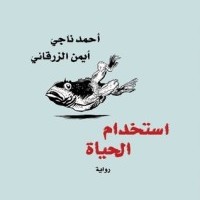The one time people pay attention to poetry, Günter Grass ends up barred from Israel
In a seasonally appropriate flare-up of tensions (happy Pesach, fellow goys!), Nobel laureate Günter Grass has been declared unwelcome in Israel following the publication last week in German newspaper Süddeutsche Zeitung of his poem “Was gesagt werden muss” (translated into English as “What Must Be Said”), which criticises the country’s behaviour towards Iran. How seriously is Israel taking this? Even Prime Minister Binyamin Netanyahu has offered comment upon it, that’s how seriously.
What’s a writer got to do to have that kind of clout? Well, aside from that Nobel win, there’s Grass’s standing as Germany’s most famous living author, having built a reputation through novels like The Tin Drum as a voice of reason in a country trying to regain equilibrium after the madness of World War II, and – oh, who are we kidding, Israel’s really up in arms about this (no pun intended) because Grass, as a teenager, was conscripted into the Waffen-SS and so is kind of, technically, strictly speaking, a former Nazi. To put it mildly: oy.
The revelations about the left-leaning Grass’s military history were a gift to his conservative critics when they became public knowledge in 2006, leading to accusations of hypocrisy given Grass’s standing as a vocal critic of his country’s actions during the war.
Unsurprisingly, it didn’t take Netanyahu long to play this particular Nazi card (incidentally, the Nazi card will not win you any poker hands any time soon): ‘For six decades, Mr Grass hid the fact that he had been a member of the Waffen SS. So for him to cast the one and only Jewish state as the greatest threat to world peace and to oppose giving Israel the means to defend itself is perhaps not surprising.’
Usually that kind of talk would count as an ad hominem attack. Nazi pasts do have an unfortunate tendency to muddy the waters on that front, however.
Grass has since responded by clarifying that he intended the poem as an attack on the policies of Netanyahu’s administration, not upon Israel as a nation (which admittedly isn’t likely to change Netanyahu’s opinion of him). All issues of who’s right or who’s wrong aside, the whole debacle is a potent reminder of the viability of poetry as a vital means of expression. Just nobody ask Carol Ann Duffy how she feels about Ahmadinejad.





Responses